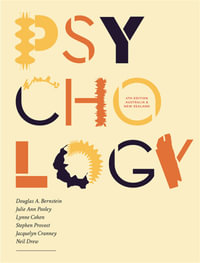This book focuses on the ubiquitous and powerful effects of ostracism, social exclusion, rejection, and bullying. Human beings are an intrinsically gregarious species. Most of our evolutionary success is no doubt due to our highly developed ability to cooperate and interact with each other. It is thus not surprising that instances of interpersonal rejection and social exclusion would have an enormously detrimental impact on the individual. Until 10 years ago, however, social psychology regarded ostracism, rejection, and social exclusion as merely outcomes to be avoided, but very little was known about their antecedents and consequences, and about the processes involved when they occurred. Understanding how people relate to each other, why they choose to exclude others, and how and why individuals and groups respond as they do to acts of rejection and exclusion has never been of greater importance than today. Acts of exclusion have been linked to depression, alienation, suicide, and mass killings. Marginalization leads people to seek stronger bonds with fringe elements, thus creating more opportunities for anti-social behaviors.
The main objective of this book is to explore the powerful consequences of being socially outcast at the neurophysiological, emotional, cognitive, and behavioral levels. The contributors offer integrative theories that encapsulate the experience of ostracism, exclusion, and rejection. Several chapters explore the role of individual differences in how people respond to exclusion, and the role of social exclusion in triggering adaptive, pro-social or dysfunctional, anti-social behaviors is discussed. The book is written in a readable yet scholarly style, and researchers, practitioners, and students at both the undergraduate and graduate level should find it an engaging overview of the field. It can be used as a core textbook in advanced undergraduate and graduate courses dealing with social exclusion, and should be of particular interest to practitioners and researchers in applied areas such as clinical, counseling, health, and organizational psychology where the real-life antecedents and consequences of social exclusion are of vital interest.
Industry Reviews
"This book is for all of us. It's for everyone who has ever been jilted, shunned, stood up for dinner, blackballed, left at the altar, or not told about the secret handshake. These chapters offer everything from clever insights to novel experiments to thorough reviews, touching in turn on many facets of the experience of rejection that we all know far too well--but have never before seen analyzed with this kind of scientific clarity." --Daniel M. Wegner, Harvard University "Why do people ignore, exclude, or reject others? How does such ostracism impact people's emotions, thoughts, and actions (in ways both toxic and adaptive)? In this state-of-the-art volume, internationally prominent social psychologists provide definitive answers. A timely and fascinating book for anyone seeking deeper insight into 'the social animal.'" --David G. Myers, Hope College "Many facets of [...] renewed scholarly interest are illuminated in this very comprehensive and sophisticated collection of papers from highly regarded scholars in several subfields. For the foreseeable future, this book will be definitive. It is a sourcebook that codifies the leading edge of research on social exclusion across many levels of analysis. The editors intended the [...] book to be a collaborative effort representing cross-fertilisation of many perspectives on exclusion rather than a more simplistic anthology of works from diverse thinkers. They have definitely succeeded, and as a result this book should be useful to researchers and advanced students in any behavioural science domain concerned with the dynamics of social belonging." --Brian H. Stagner, in PsyCritiques, June 14 2006
























